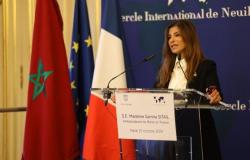In order to increase the motivation of patients wishing to quit smoking, some offer to reward them in various ways: with money or purchase vouchers, in a single payment or in several, to reward the different abstinence milestones. reached. Effective interventions, according to a Cochrane review published on January 13. In some studies, participants were even asked to reward themselves, by setting aside an amount of money that they were only allowed to get back by remaining abstinent for a given length of time. Initiatives of this type have already been attempted in businesses, clinics or community centers.
In 2019, a first Cochrane review concluded that after six months of follow-up, patients receiving a financial incentive had around 50% more chance of quitting smoking, compared to those in the control group (10.5 versus 7%). Given the harm caused by tobacco consumption, the authors concluded that financial incentives could be part of an integrated approach to help with smoking cessation. Another important point raised by this early work was that the success rate was maintained after the financial incentive ended.
A confirmed effect, particularly in pregnant women
In this new review, the authors focused on the long-term effects of health programs. contingency management (i.e. consisting of rewarding patients according to their progress) in general populations, and in pregnant women.
The team relied on 48 studies, 15 of which were not part of the corpus 5 years ago, totaling nearly 22,000 participants. The majority (33) of these studies were conducted in the United States, ten in Europe, two in Thailand, one in the Philippines, one in Hong Kong and one in South Africa.
Patients with financial incentives were 52% more likely to quit smoking. Excluding studies that offered rewards beyond 6 months of follow-up, the chances of success remained 46% higher. This suggests that the effects of financial rewards are sustained over time.
The value of the rewards received varies considerably between studies, ranging up to $1,185 (approximately 1,210 euros). The authors did not measure a significant difference between studies offering large or small rewards. However, given the different standards of living between the countries where the tests took place (50 euros do not have the same value in Thailand and Western Europe), they are careful not to conclude. For example, in the French context, patients in the control group already benefit from a financial incentive in the form of coverage for replacement products by social security.
Finally, the researchers analyzed 14 studies involving 4,314 pregnant women, including one in France, two in the United Kingdom and 11 in the United States. The data from these different studies allow us to conclude that the financial incentive has an even greater effect, since the latter is associated with a chance of success multiplied by 2.13.
“There is high-level evidence supporting improved smoking cessation rates among pregnant women receiving financial rewards, underline the authors. This success rate is high, whether before the end of the pregnancy or during the postpartum period. »






